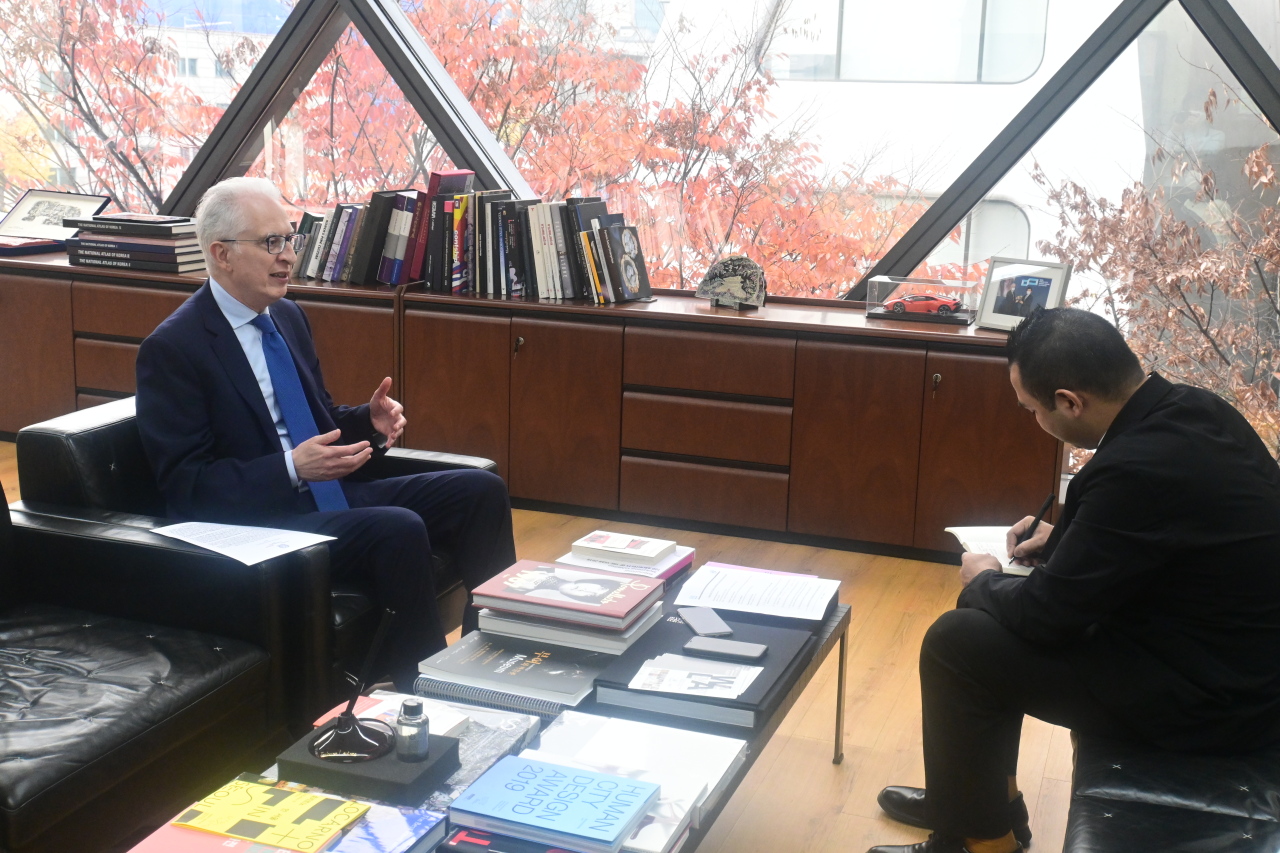The climate crisis is one that the world must respond to quickly and in a concerted manner, Italian Ambassador Federico Failla said in an interview with The Korea Herald on Thursday, emphasizing food sustainability ahead of the sixth World Week of Italian Cuisine, which runs Nov. 22-28.
Failla said the week’s theme is food sustainability from a traditional perspective of Italian cuisine, because food culture is deeply rooted in tradition.
The World Week of Italian Cuisine is an initiative of the Italian Ministry of Foreign Affairs and International Cooperation, with the support of Italian embassies and consulates around the world. Its aim is to promote Italian cuisine and original Italian ingredients and products.
The week features cooking classes and seminars on Mediterranean diets and local food.
“Food is culture. The way you eat, how you eat, what you eat is deeply part of your culture,” Failla said, adding that cuisines should always be evolving and ready to accept new influences -- for example, new ingredients, new ways of cooking and influences from other cuisines.
“If we think of Italy today, we can of course think of pasta that goes with tomato sauce. But tomato sauce, we did not know before the discovery of America,” he said.
Failla said he appreciated the presence of authentic Italian food in South Korea at the country’s Italian restaurants, as well as Korean tourists’ interest in trying Italian food.
Discussing the impact of climate change, the ambassador said the current state of the planet is worrisome because there is much more consumption than production.
He said human beings are borrowing a debt from the Earth that future generations will have to pay.
The ambassador stressed the need to reverse the trend, proceed rapidly toward sustainability and produce food to save the next generation.
Addressing the passive attitude about climate change in some countries, Failla said many developing countries have their own preoccupations and worries.
“But everyone has to make an effort,” he said.
According to Failla, measures of development such as GDP growth are neither sufficient nor correct because they do not take health into account.
“Only last year, 300,000 people died of pollution-related illness,” Failla said.
Failla disagreed with the opinion that renewable energy is mainly for rich countries because coal is still the cheapest source of energy, saying this is not necessarily the case if health impacts are factored into the cost.
Failla said the world still needs some fossil fuel, but that huge investments have to be made to develop technology for renewable energy and clean energy. He pointed to the prevalence of government subsidies to fossil fuel companies.
He also cited the European Union’s massive investment in the COVID-19 recovery.
“We thought that COVID was an emergency that we had to respond in such a massive way. Why we think that climate is not an emergency that we must answer?”
Failla suggested that to engage communities and initiate environmental campaigns, government bodies should lead, not follow, and should be prepared to explain their decisions at every step.
“If the temperature will grow more than 2 percent, many countries and territories would disappear,” he said, mentioning the effects on coastlines and consequently on the Italian city of Venice, as well as on the Pacific islands, Maldives and many other communities near the water.
“It’s not the point of being good, being nice. Being responsible is a necessity, is something that we have no options on,” Failla said.
Failla applauded the Korean government’s commitment to its ambitious climate targets for 2030 and 2050, emphasizing multilateral cooperation.
He mentioned Italy’s new Ministry for Ecological Transition, which replaces the former ministries of Environment and Energy.
“The environment and energy of course is closely related,” Failla said.
By Sanjay Kumar (
sanjaykumar@heraldcorp.com)








![[Today’s K-pop] Blackpink’s Jennie, Lisa invited to Coachella as solo acts](http://res.heraldm.com/phpwas/restmb_idxmake.php?idx=644&simg=/content/image/2024/11/21/20241121050099_0.jpg)